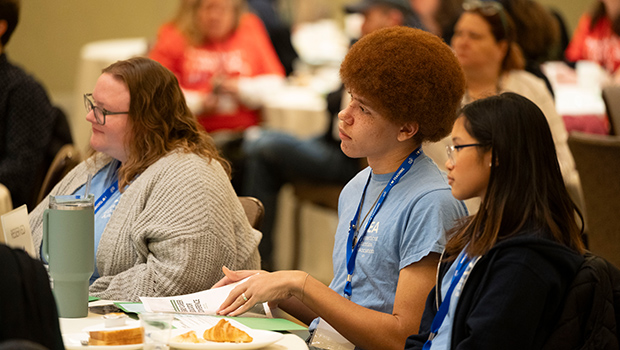In a public school teacher’s career, the first years are arguably the hardest, and no one knows that better than New London elementary educator and 2024 Connecticut Teacher of the Year Kiana Foster-Mauro, who delivered the keynote address at CEA’s Early Career Educator Conference.
Now in her third year of teaching, Foster-Mauro unexpectedly found herself the most senior member of her grade-level team only two months into her career.
“For a variety of personal and professional reasons, the colleagues I started the year with had to step away from the classroom, and suddenly I found myself having to make really tough decisions that would impact my grade level and every child in it—all while I was still trying to figure out how to work the copy machine,” she explained. “Engaging in difficult conversations with my then-administrator became a regular occurrence as I found myself having to speak up and be honest, which can be scary for a first-year teacher who’s just trying to do right by her students, learn the curriculum while also teaching it, and figure out when to squeeze in bathroom breaks. There’s this often-unspoken expectation of new teachers that we must keep our heads down, and this can feel suffocating for new teachers bursting with new ideas and excited to collaborate.”
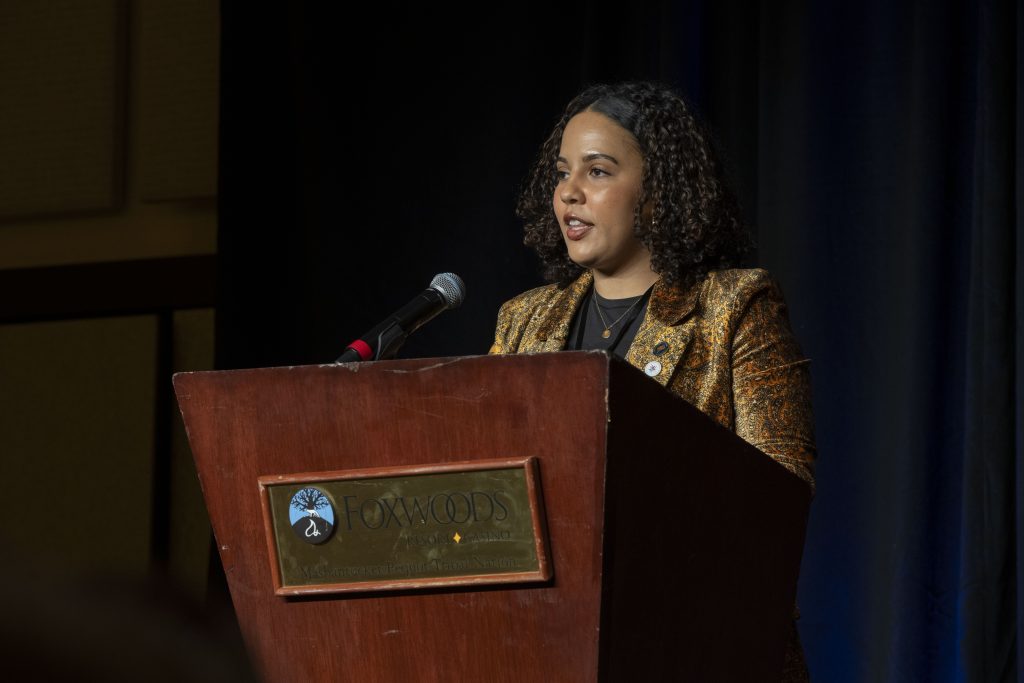
2024 Connecticut Teacher of the Year Kiana Foster-Mauro addressed conference attendees.
In spite of the pressure new teachers feel to “keep much of that bottled up,” Foster-Mauro notes, “I would not be where I am today if I hadn’t found the strength in my voice in this field early on.”
When a new team of teachers was assembled for her grade level, including early career and veteran teachers, she recalls, “We amplified each other’s voices and were excited to learn with and from each other.”
And that, she said, was her hope for CEA’s Early Career Educator Conference attendees.
“Early career and aspiring educators hold immense value and deserve to be heard, so please do not be afraid to bring your full self to your work. Our schools and our students will be better for it. Do not sacrifice who you are and what you believe in to try to fit into a set of expectations; hear and be heard.”
Your community
Nearly 200 aspiring and early career educators—along with veteran colleagues—attended the conference on March 23 at Foxwoods, where CEA President Kate Dias emphasized, “Teaching is done best when it’s done in community,” urging participants, “Think of this as a launching pad. Meet and talk to others here, expand your sphere of camaraderie, and find inspiration to bring back to your school and your practice. Remember, teachers constantly have opportunities to reinvent themselves and grow as education leaders, and events like these and involvement in the work of your union help make that possible.”
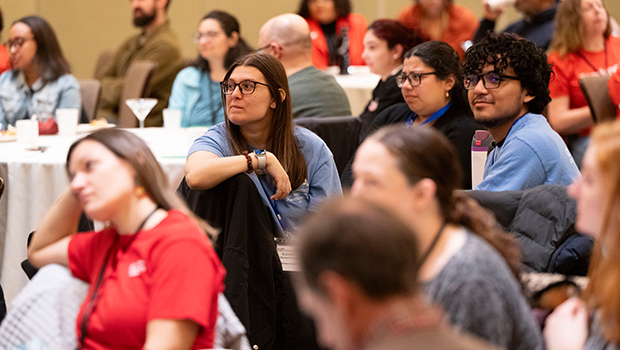
CEA President Kate Dias emphasized to early career educators that, “Teaching is done best when it’s done in community.”
Workshop topics included play-based learning, AI in the classroom, maximizing instruction, pension planning, IEP goal writing and progress monitoring, STEM teaching, LGBTQ issues for educators and students, setting the stage for social justice in the classroom, time management and self-care, and teachers’ legal rights and responsibilities.
“Our local president emailed us about this conference, and when I saw the topics, it looked like something that would be really interesting to me,” said Columbia second-grade teacher Kylee Mattis, who was joined by colleagues Shawn Dousis and Shannon Piatek. “As a team, we’re already implementing play-based learning, but I’m looking for more ways to incorporate play, because I know it makes our students happy and ready to learn. I’m also interested in a refresher on teachers and the law.”
“Shawn and Kylee came running into my room and said, ‘We’re going!’” said Piatek. “We’ve always incorporated play into our students’ learning and are looking for ways to expand on it and share out as a team with other teachers in our district. I’ve been teaching 28 years, and as educators we’re always modeling lifelong learning. We want to improve our practice, and CEA workshops are consistently very valuable to our growth. ”
Decoding CT-SEDS
Getting a better handle on special education data systems and reporting—particularly with the rocky rollout of CT-SEDS last school year—was also a priority. First-year West Hartford special education teacher Rebecca Nowinsky was one of many conference attendees who took advantage of that training and the opportunity to meet other CEA members doing similar work.
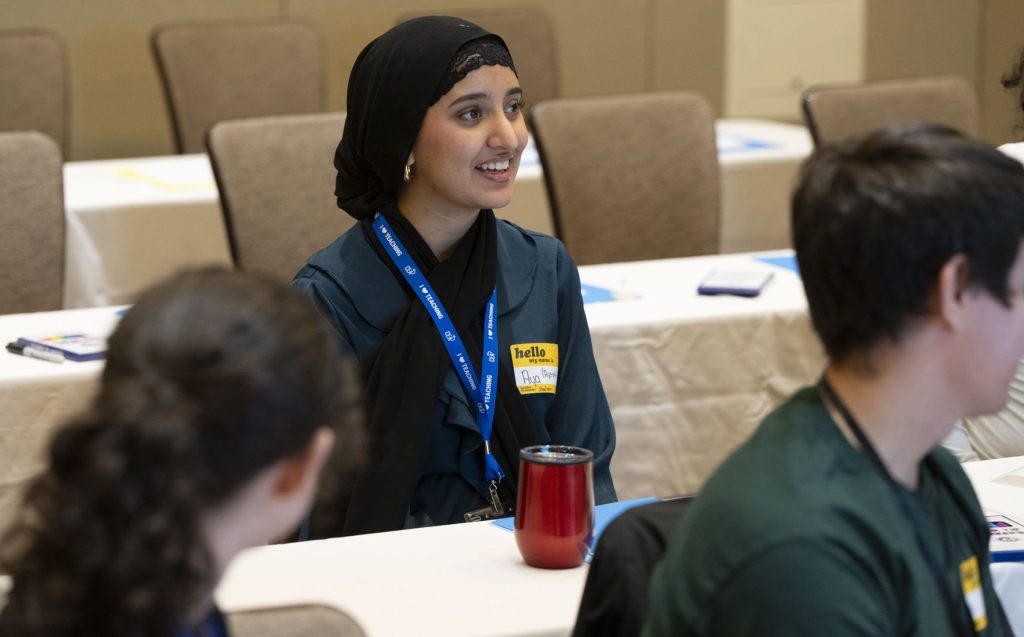
Nearly 200 aspiring and early career educators—along with veteran colleagues—attended the conference.
“I’m grateful for professional development that’s relevant to the work I do and that introduces me to other teachers from around the state,” Nowinski said.
“For special education teachers, there’s a lot to do in the time given, and I’m interested in better approaches to writing student goals, monitoring progress, and managing time,” said sixth-year CREC special education teacher Elda Rodrigues. “With CT-SEDS, we simultaneously built the plane and flew it, so there are still nuances we’re figuring out here and there.”
“I haven’t had the experience of seeing an actual IEP, so when I encounter one in my future classroom, I want to feel like I have a jump on it,” said Katie Schulte, an elementary education major in her junior year at Southern Connecticut State University.
Jayde Eggert, a senior at SCSU graduating in December with degrees in special education and elementary education, agreed. “IEP writing and time management are not always taught in detail in teacher preparation programs. I’ve seen IEPs but haven’t written one, so I thought that would be a good thing to have under my belt.”
Short- and long-term goals
“This is my 23rd year teaching, and as a new teacher mentor, I work with all our first-year teachers at CREC magnet schools,” said Kahia Rockwood. “This conference is where I come to gain strategies to help beginning teachers manage their classrooms, develop clear routines, and maximize instruction.”
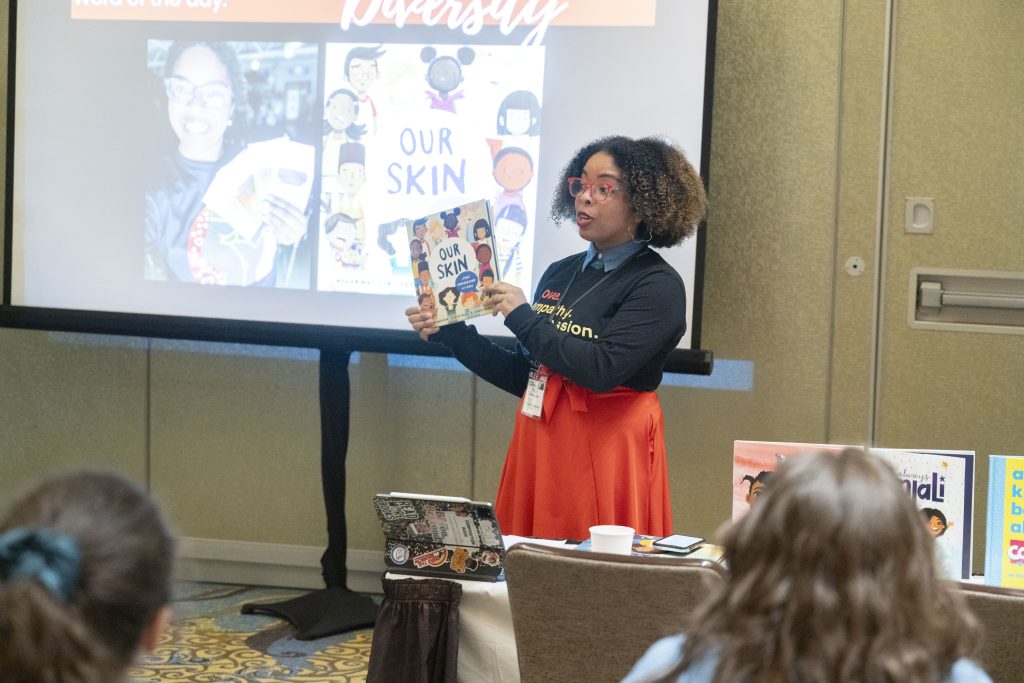
East Hartford teacher Tracey Lafayette’s workshop focused on setting the stage for social justice learning in the classroom.
“Between teaching academics and social emotional skills, teachers wear a lot of hats,” said first-year CREC educator Shabana Kumar, who teaches third grade in Glastonbury. “We’re managing curriculum and incorporating a new reading curriculum, and I’m here to work on skills that will help me with lesson planning, classroom instruction, self-care, and work-life balance.” She added, “New teachers are still learning how to be better teachers, but we can also bring new ideas and inspiration to veteran teachers.”
Indeed, CEA’s Early Career Educator Conference is designed to not only help early career educators address immediate needs, such as establishing effective routines, relationships, and instructional and classroom management strategies, but also tap into the expertise of those who specialize in artificial intelligence, STEM research, education law, teacher pensions, and more.
“As an early career educator, with the climate we’re in, I want to make sure I understand everything that’s going on so that I can best serve my students,” said fourth-year teacher Glastonbury Austin Longendyke, who registered for both the legal and pension planning workshops.
“I’m also looking at how to plan for retirement and all the ‘what-ifs,’ said sixth-grade math teacher Kevin Stone, now in his second year at Killingly Middle School. Stone, who has found AI useful in helping his students construct meaning from math problems and understand how different parts of a word problem come together, said, “I’d like to get a better sense of practices I can turn into habits and other ways AI can connect with math.”
Building bridges
After years of experience in other fields, many educators have come to teaching as a second career, and CEA’s Early Career Educator Conference helps not only with pension planning but also connecting two or more professions.
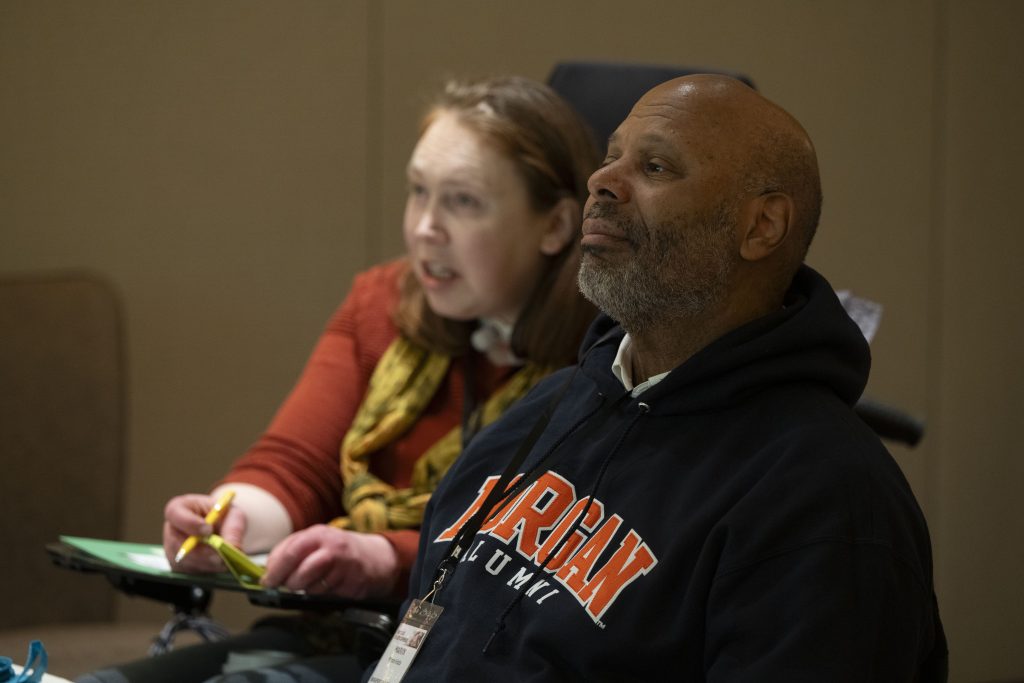
Second-career educators Jessica Clark and Marvin Hicks said that being a great educator means engaging with professional development on a consistent basis.
First-year East Haven educator Michael Cole earned a science degree and worked in manufacturing before completing his teacher certification in technology.
“I teach manufacturing at the middle school, which is a traditional shop class with a lot of STEM mixed in, and at the high school, I’m a woodworking instructor,” he explained. “I’m always looking for ways to mix in more STEM, diversify what I teach, make it less one-dimensional, inspire more students, and find out what they’re interested in.”
Marvin Hicks, a former engineer who teaches computer applications at Bridgeport’s Harding School, has attended the Early Career Educator Conference in the past and continues to find value in its offerings. “Everything I do is tied to a STEM curriculum,” he said. “I have an after-school gaming club I’m trying to expand in terms of what I can offer kids, and part of that’s going to be coding associated with robotics trucks. I’m also looking at ways of gaining instructional efficiencies. To be a great educator, you have to engage on a consistent basis, and professional development like this makes that possible.”

